Next steps to the future we want
Updated: 2013-07-15 07:13
By Wu Hongbo (China Daily)
|
||||||||
One year ago, the world's leaders met in Rio de Janeiro, together with about 50,000 concerned individuals and representatives from major groups, including business and academia. These leaders, in a report entitled "The Future We Want", agreed to pursue the necessary steps to take the world toward a more sustainable future.
The Rio+20 conference was a milestone on the long road to sustainable development. It cemented support for the agreements reached at the 1992 Earth Summit in Rio de Janeiro and renewed the commitment of leaders to put their countries on a path toward improving people's lives today while preserving the planet for future generations.
It was a bright moment of international cooperation at a time of profound national and global challenges. The leaders agreed to develop a new set of sustainable development goals, building upon the achievements of the UN Millennium Development Goals launched 13 years ago that have played a important role in the fight against poverty.
The MDGs have been a powerful galvanizing force for efforts - from the global to the local level - to reduce poverty, provide basic health and education to people, and promote gender equality.
Yet there is enormous potential to do more before the MDGs' deadline ends in 2015. Even if we were to reach all the MDGs, we know there is still far more to do to eradicate extreme poverty and address climate change and other growing environmental threats.
At Rio de Janeiro last year, governments recognized that future goals in the post-2015 era must be equal to the complex challenges facing the world today and in the coming decades. They recognized that to irreversibly eradicate poverty and ensure social progress, we must build new economies that can decisively move people out of poverty, withstand shocks and adapt to the growing impact of climate change. Without action now, climate change and other environmental threats have the real potential to set back social and economic progress for future generations.
UN member states are now deliberating on the goals that can propel a new sustainable development agenda and will present a proposal to the General Assembly in 2014. A rich ferment of ideas is brewing in academia, and among major social and government groups, with recent proposals from high-level reports, including that of the UN secretary-general's panel of eminent persons and the Sustainable Development Solutions Network, as well as those from thousands of other people. It is expected that the sustainable development goals to be set will be transformative, universal and equitable, with sustainable development at their core.
The new goals will guide all economies - developed and developing alike - to more sustainable development paths. That is why Rio+20 agreed that the goals should be universal and applicable to all countries. Sustainable development is not only about promoting economic and social well-being while protecting the environment, it is also about working together, across the globe, to responsibly manage the earth's life support systems and ecosystems.
This is a collective undertaking that requires all countries to cooperate in order to secure our common future. It also requires the engagement of all actors, particularly business and industry and other major groups, in developing and using many of the technologies that will be needed. Voluntary commitments and partnerships, such as the 1,382 already registered at and since Rio+20 that are worth over $600 billion, will be key to realizing a more sustainable world.
Indeed, many countries have the know-how. And many have already begun to pioneer new ways of organizing their economies with more sustainable energy and transport systems. A number of countries are also investing heavily in renewable energy technologies and low-carbon public transport. Yet, considering the scale of the economic transformations that are needed, we will have to develop and disseminate technologies that are better, cleaner and affordable on a far grander scale. Let's be clear. The best brains, wherever they may be, are needed to make this mission a success.
If the positive legacy of Rio+20 is to be realized, the international community will need to rally around an ambitious set of sustainable development goals in 2015, and agree concretely on how we will work together to achieve them.
The future we are aiming at is one where poverty will be history and where all human beings can achieve the full development of their potential and live lives of dignity, while consuming and producing within the limits of the planet. Such a world is within our reach. And that is the future we want.
The author is the UN under-secretary-general for Economic and Social Affairs.
(China Daily 07/15/2013 page9)
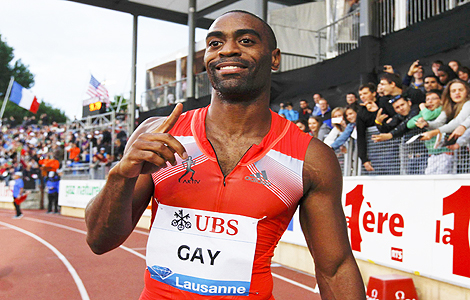
 US star sprinter fails drug test
US star sprinter fails drug test
 Protests erupt after verdict
Protests erupt after verdict
 Color Run in London promotes healthy living
Color Run in London promotes healthy living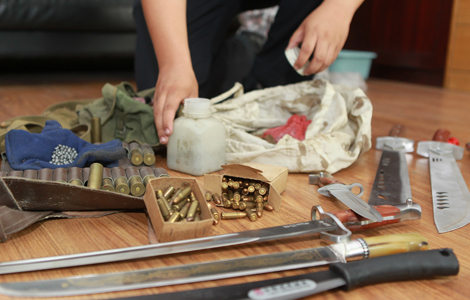
 Urumqi residents hand in weapons
Urumqi residents hand in weapons
 Pool jammed in summer heat
Pool jammed in summer heat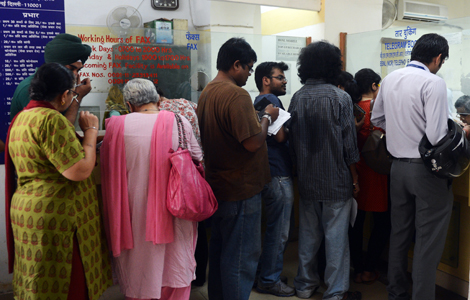
 Last stop for the telegrams of India
Last stop for the telegrams of India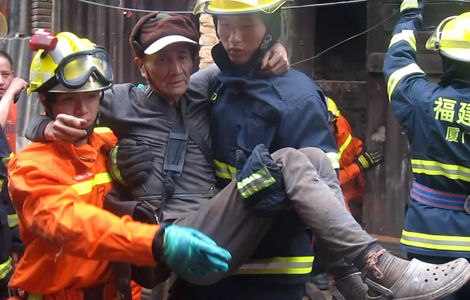
 Heavy rain, strong winds as Soulik heads inland
Heavy rain, strong winds as Soulik heads inland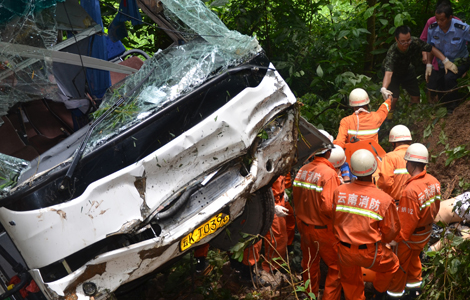
 8 dead, 19 injured after bus leaves road in Jinghong
8 dead, 19 injured after bus leaves road in Jinghong
Most Viewed
Editor's Picks

|

|

|

|

|

|
Today's Top News
Asiana survivors coping with post traumatic stress
China's Q2 GDP growth slows to 7.5%
Canada mourns victims of train accident
Air crash students return to families
Snowden says he won't release harmful US data
Local governments face financing woes
Zimmerman not guilty
More foreign firms in IPR cases
US Weekly

|

|






